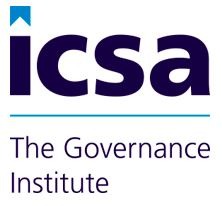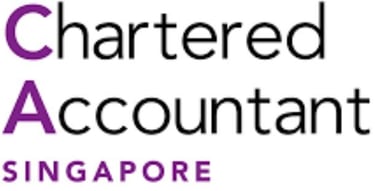The Art of Choosing a Visionary CFO
Within a corporate hierarchy, the Chief Financial Officer (CFO) has long been seen as the alert guardian of financial discipline, carefully maintaining the company's reserves and ensuring the integrity of financial records.
CFO
Terry
3/19/20255 min read


CFOs and Their Constantly Evolving Role
Within a corporate hierarchy, the Chief Financial Officer (CFO) has long been seen as the alert guardian of financial discipline, carefully maintaining the company's reserves and ensuring the integrity of financial records. But as the business environment has changed, the function of the CFO has also evolved into a multifarious architect of strategic vision.
Today's CFOs are more than just shadows of income statements and balance sheets; they are strategic partners that deftly combine financial skills with broad company goals. At the junction of strategy and finance, they coordinate mergers and acquisitions, support digital changes, and guide the ship over turbulent economic times.
This evolution not only increases their influence within the C-suite but also helps them to be possible successors to the Chief Executive Officer as they represent a whole awareness of the pulse of the company. The contemporary CFO essentially remains free from conventional limits and plays a role as dynamic and broad as the ever-changing corporate environment itself.
For more details, you can refer: How CFOs Can Build Cross-Functional Relationships
CFOs and the Importance of Cross-Functional Relationships
Chief Financial Officers (CFOs) have become essential conductors in the complex realm of contemporary business, arranging harmonic interactions among several organizational roles. CFOs bring in efficiency and creativity by tearing down conventional silos and supporting cross-functional partnerships. By combining several points of view, such partnerships not only simplify channels of communication but also inspire innovation by lowering mistakes and repetitions.
This junction of concepts drives companies towards innovative ideas and flexible plans. Furthermore, the synergy between finance and other departments improves forecasting accuracy, thus guiding more wise decisions and strong financial performance. The CFO's job as a catalyst for cross-functional cooperation essentially changes the organizational scenario and promotes a culture of constant learning and adaptability, therefore ensuring success in an ever-changing marketplace.
For more details, you can refer: How CFOs Can Elevate Finance Business Partnering
This blog sheds light on things to consider while you hire a CFO:
Emerging as a pillar in the realm of corporate leadership, the Chief Financial Officer (CFO) coordinates the fabric of fiscal strategy, risk mitigation, and organizational growth. Their discriminating eye turns financial data into strategic insights that help the company negotiate choppy economic times. They ensure compliance by deftly balancing risk and opportunity, hence encouraging innovation. The CFO's management is like a great conductor harmonizing many components into a coherent performance that drives the business toward ongoing success. So, you need to consider the following while you initiate your search for a CFO for hire:
Assess Your Organizational Needs
Starting the process to choose a Chief Financial Officer (CFO) requires a careful review of the financial scenario of the company and the dynamics of its fiscal assembly. Examining the company's financial situation—including revenue paths, profit margins, and liquidity ratios—helps one to identify the particular knowledge needed in a CFO to negotiate upcoming obstacles.
At the same time, a thorough examination of the strengths and shortcomings of the present financial team is essential. Through strategic forecasting or compliance acumen, this introspection reveals areas ready for improvement; thereby defining the exact skills the new CFO in Singapore must possess to harmoniously increase the team's performance.
Define the CFO's Role and Responsibilities
The Chief Financial Officer (CFO) is a key player in the great realm of corporate leadership as they coordinate the fabric of strategic insight and financial accountability. Assumed to be a strategic planner, the CFO explores the maze of market dynamics and develops and implements long-term corporate plans that guide the company towards success.
Their keen eye ensures careful financial control, including the disciplines of budgeting, forecasting, and financial reporting accuracy, thus guiding the road for well-informed decisions. Furthermore acting as the guardian of risk management, the CFO as a service finds and reduces financial hazards, therefore protecting the assets of the business against the erratic waves of economic uncertainty. The CFO's many functions are essentially the cornerstone upon which the tower of corporate success is erected.
Essential Qualifications and Skills
Usually with postgraduate degrees in finance, accounting, or similar fields, a Chief Financial Officer (CFO) must have a strong educational background supplemented by respected credentials like CPA or CFA. A demonstrated track record in related sectors ensures the CFO's skillful handling of problems unique to their field. Furthermore, in the digital age of today, mastery of contemporary financial systems and technology is very essential as it enables the CFO as a service in Singapore to use data analytics and stimulate financial innovation.
Leadership and Interpersonal Skills
The provider of CFO Services for Startups and established businesses must have leadership and interpersonal abilities in the corporate leadership to guide the company towards success. Collaborative leadership is most important among them; a CFO must skillfully direct finance teams while promoting smooth integration with other departments, therefore ensuring a consistent pursuit of the strategic goals of the organization.
Just as important are communication skills which help the CFO to turn complicated financial data into understandable insights for many stakeholders, therefore supporting well-informed decision-making. Furthermore, in the dynamic marketplaces of today, flexibility becomes a pillar as it helps the CFO to negotiate different issues using creative problem-solving strategies, therefore safeguarding the competitive edge of the company. So, look for all these qualities as these will help you choose a better CFO as a service in Singapore.
Concluding Remarks
A Chief Financial Officer (CFO) is a pillar in the complex web of corporate governance in guiding the business towards long-term success. From conventional financial stewardship to strategic partner, the CFO's responsibility has drastically changed to be crucial in forming and implementing the vision of the company.
Their sharp awareness of industrial trends and their experience negotiating challenging financial environments ensures not just financial responsibility but also stimulates innovation and growth. It is essential to hand this important role to a leader with the necessary intelligence and vision as their impact affects every aspect of the company, therefore ensuring its resilience and success in an ever-changing market. For aspiring finance professionals who wish to learn more about Finance Business Partnering, FP&A, and soft skills, you may visit here to find out more.
***This publication is provided for general information purposes only and is not intended to cover every aspect of the topics with which it deals. It does not constitute legal, tax, or accounting advice. Readers should not rely solely on this content for making decisions without consulting a qualified professional. Reading our articles does not create an attorney-client relationship between the reader and our firm.
While we strive for accuracy, laws and regulations change frequently, our articles may contain links to external websites or resources. We do not endorse or guarantee the accuracy of such content. We make no representations, warranties or guarantees, whether express or implied, that the content in the publication is accurate, complete or up to date. Use the information at your own risk.
Before taking any action based on our articles, consult a qualified attorney, tax advisor, or accountant pertaining to your unique situation. Always seek legal advice to ensure compliance with local regulations and ethical standards.***
ADVISORY SERVICES
Compliance Outsourcing










Adept Corporate Services (ACS) is a leading corporate service provider, offering comprehensive business solutions, including entity formation, corporate secretarial compliance, bank account opening (including offshore entities), corporate accounting, fund administration, tax compliance, MAS & SFC licensing & Compliance outsourcing, work visa applications, and payroll services.
Singapore| Malaysia | China | Hong Kong SAR | USA | British Virgin Islands | Cayman Islands
新加坡 | 马来西亚 | 中国 | 香港特别行政区 | 美国 | 维京群岛 | 开曼群岛


©2021-2026 Adept Corporate Services | All Rights Reserved


